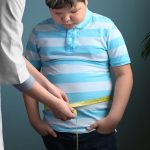
Yikes! The way parents use their phones around their kids may influence how much inappropriate content kids consume. Researchers reported Feb. 4 in the journal BMC Pediatrics that the odds of kids watching R-rated movies or playing mature-rated video games rose with higher parental screen use and inconsistent family media rules. The study analyzed data from more than 10,000 12- and 13-year-olds who were part of the Adolescent Brain Cognitive Development (ABCD) Study. “We wanted to explore parent rules and adolescents’ exposure to mature content because there’s a lack of research to guide parents of young adolescents on media use,” lead author Dr. Jason Nagata told CNN in an email. “While the American Academy of Pediatrics provides general recommendations for ages 5 to 18, young adolescents are at a unique developmental stage — they’re not little kids anymore, but they’re also not fully independent teens,” Nagata, an associate professor of pediatrics at the University of California, San Francisco School of Medicine, added. Parents in the study answered a 14-item questionnaire, rating their agreement with statements such as, “I try to limit how much I use a screen-based device when I am with my child” on a scale from 1 (strongly disagree) to 4 (strongly agree). Meanwhile, kids self-reported how often they watched R-rated movies and played mature-rated video games, using a 0-to-3 scale (never to… read on > read on >
























-300x200.jpg)













